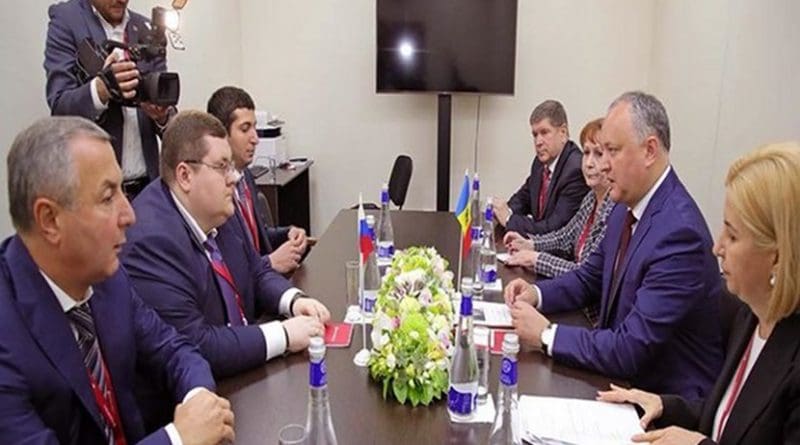Russian Oligarch Eyes Bitcoin Farms In Breakaway Transnistria
By Madalin Necsutu
Moldova’s pro-Russian President Igor Dodon on Thursday met Igor Chaika, son of Russian General Prosecutor Yury Chaika, and a wealthy businessman, to discuss business opportunities for Russian investors in Moldova. The duo met at the economic forum in St Petersburg.
“Russian businessmen are willing to invest large sums in our economy and create new businesses and jobs. To that end, however, entrepreneurs need to create an enabling environment,” Dodon wrote on his Facebook page.
But what has most interested both the Moldovan and Russian media about this meeting is Chaika’s interest in investing in “mining farms” to produce the cryptocurrency Bitcoin in the breakaway region of Transnistria.
Mining farms are hardware that help create cryptocurrency by using the computing power of PC systems. This requires a lot of electrical energy, while Transnistria provides cheap prices using natural gas from Russia’s Gazprom to produce electricity.
Chaika visited Moldova in September 2017 for talks with Dodon. The Moldovan President then wrote on Facebook about the prospects for business development with Russian investors.
Immediately after the meeting, Chaika went to Tiraspol to meet the Transnistrian leader, Vadim Krasnoselsky.
In December 2017, Chaika then signed an agreement on behalf of the business association “Delovaya Rossiya” [Russian business] with the Transnistrian authorities to secure an easy pass for Transnistrian goods to the Russian markets.
Since 2013, Moldova has been under a Russian embargo for exports of foods and wine, but many companies from the pro-Russian breakaway region of Transnistria and the autonomous region of Gagauzia in Moldova are exempted from the rule.
After this meeting, in January 2018, Transnistria’s assembly quickly adopted a law exempting Russian investors from taxes. They also benefit from the region’s special electricity prices.
Chaika then told the Russian daily Kommersant that he wanted to move on with the bitcoin plans.
“Now there are the prerequisites to move on,” he told the paper.
“We agreed with the head of the Tiraspol executive that after the law came into force, the authorities would provide us with the infrastructure for the project. We will expect their proposals regarding the locations for the creation of mining farms – the ball is in their court,” he said.
Ever since the war between Moldova and Tiraspol 26 years ago created the breakaway region on the left bank of Dniester river, Gazprom has charged Moldova for the gas that the national energy company Moldovagaz flows into this territory.
Moldovagaz is owned 51 per cent by Gazprom and 49 per cent by the Moldovan Minister of Economy.
Meanwhile, Dodon also noted on Thursday that he had talked to Chaika about organising a Moldovan-Russian business forum in September in Chisinau, before the campaign for the parliamentary elections starts.
On May 14, Dodon Moldova’s accession to observer status in the Russian-led Eurasian Economic Union, although both the pro-EU government and most experts doubt this will being Moldova much benefit as it now exports most of its goods to Europe.

